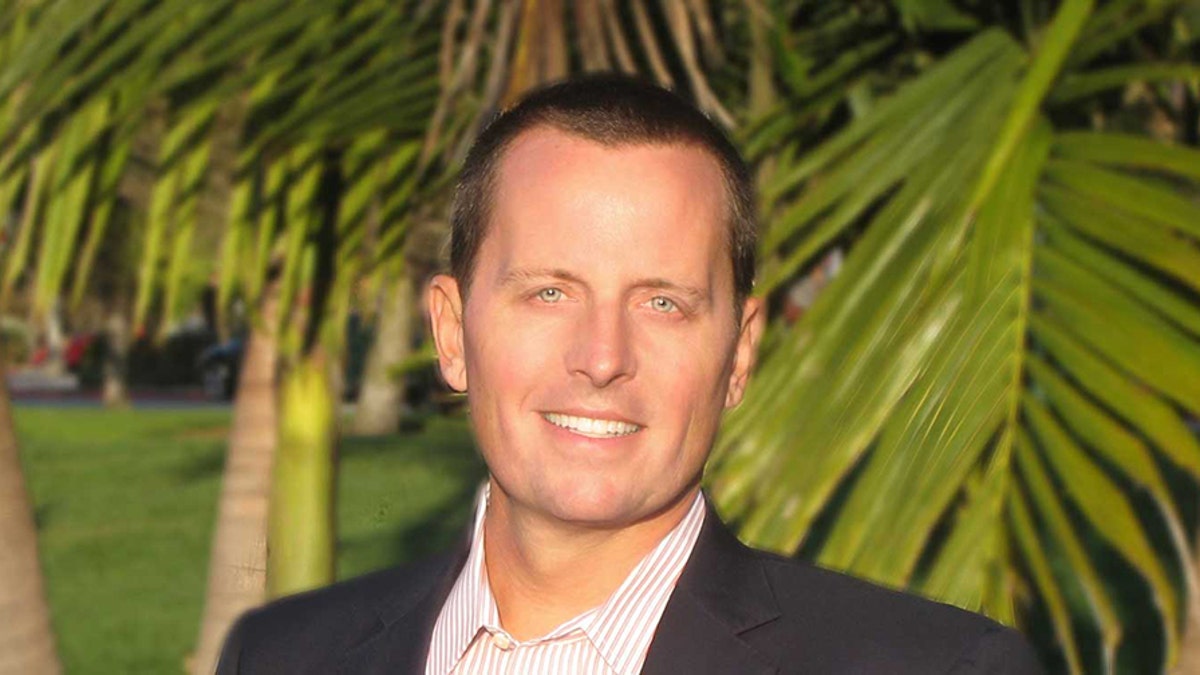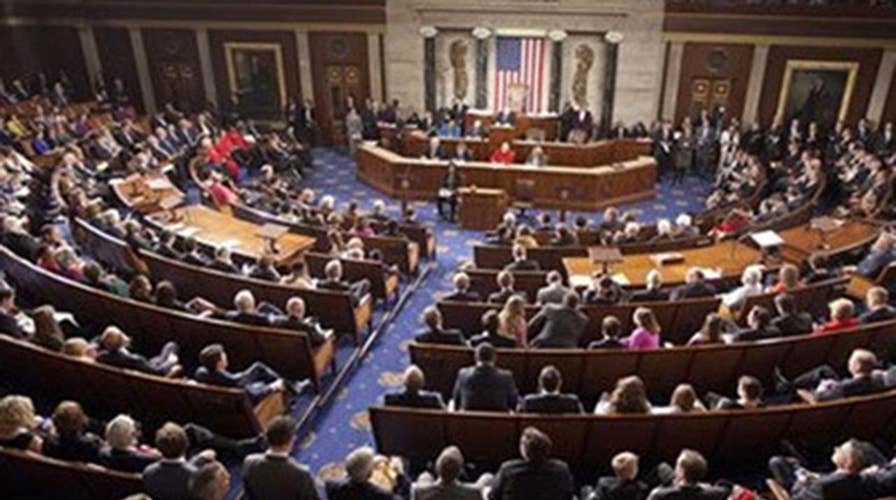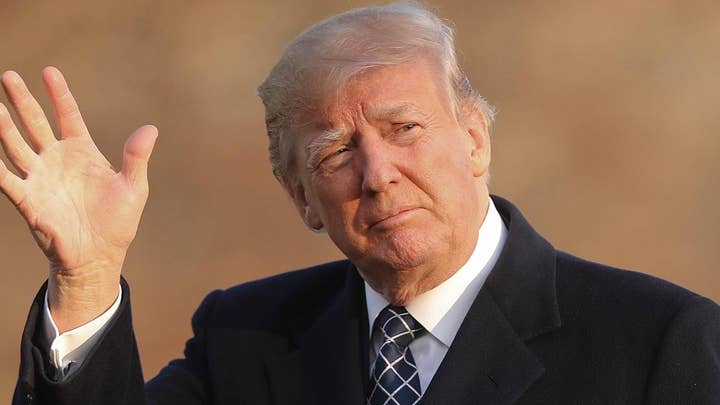US ambassadorship to Germany stalls in Senate
Ric Grenell's social media posts criticized; Rich Edson reports from the State Department.
Senate Republicans fed up with the Democrats' refusal to allow confirmation votes on a slew of critical appointments - including the high-profile case of the Trump administration's first openly gay ambassadorial nominee – may move more aggressively to finally break the logjam.
"It's time to end this partisan spectacle. We have 78 more nominees for various jobs who’ve made it through their committee hearings and are waiting for a vote on this floor," Sen. John Barrasso, R-Wyo., said on the floor of the Senate last week. "Most of these people have bipartisan support, they can be confirmed easily."
Barrasso wants to change a rule that allows for 30 hours of Senate discussion for each nominee, which Republicans say effectively allows Democrats to jam up the appointment process to a ridiculously slow crawl. Barrasso wants to limit the number of hours of discussion down to eight - a standard Democrats themselves supported under the Obama administration.
TRUMP ACCUSES DEMS OF SLOW-WALKING 'HUNDREDS' OF NOMINATIONS
"It’s time to return to the rules for debating nominations that the Senate used four years ago … Democrats controlled the Senate at the time – and a Democrat was making the nominations, that was President Obama," Barrasso said.

Richard Grenell was nominated by Trump to be ambassador to Germany last year, but remains among those held up in the process.
The logjam holding up one particular nomination has attracted more attention in recent weeks, and may be contributing to the effort to change the rules. Richard Grenell, a conservative and experienced foreign policy expert who is openly gay, was nominated by Trump to be ambassador to Germany last year, but remains among those held up in the process.
Grenell's nomination, which has been championed by a broad range of Republican and conservative officials and commentators, recently picked up the support of a liberal gay rights group, the Harvey Milk Foundation.
“I understand those who are frustrated with the Trump administration and the actions the Trump administration has taken” who have also opposed Grenell, Stuart Milk, the co-founder of the group, told the New York Times. “And I think that’s misguided."
In response to the growing calls to approve Grenell, Majority Leader Sen. Mitch McConnell, R-Ky., last week went to the floor of the Senate and called for a unanimous voice consent to push the nomination through. But Sen. Jeff Merkley, D-Ore., objected, citing his objections to some comments Grenell, a former Fox News contributor, posted on his Twitter feed. According to Merkley, some of Grenell's tweets showed "a complete disregard for the Senate confirmation process."
Grenell’s supporters have pushed back strongly on Merkley’s objections, and say Grenell’s tweets since he was nominated last fall have focused on foreign policy issues. His supporters have taken their case to twitter, through #confirmgrenell and other online efforts.
Meanwhile, the Trump administration has also stepped up its effort to push through Grenell's nomination. Speaking at a White House press briefing last month, spokesperson Sarah Sanders cited the Democrats' "historic obstruction" in blocking that and the growing number of other nominations.
"Mr. Grenell, a Harvard-educated experienced diplomat, was the longest-serving U.S. spokesperson at the United Nations. He was nominated in September of last year. He was reported out of the Senate Foreign Relations Committee with bipartisan support. He is waiting to represent America's interest and be our country's top voice in a G-7 country," Sanders said.
The “hyper-political delay on Mr. Grenell puts our national security and America's foreign policy interests in jeopardy," Sanders said. "The Senate should move to confirm him immediately."
A range of foreign policy experts have also expressed their concern over the lack of a U.S. ambassador to Germany. The U.S.-Germany relationship is a critical one, particularly with the Berlin government's involvement in issues like the Iran nuclear deal, trade, and NATO security.
The holdup of Grenell’s nomination has also irritated German politicians and the media.
"America needs a voice in Germany!" read the headline of a commentary piece by Florian von Heintze, the Deputy Editor-in-Chief of BILD. "When the German-America relationship suffers, that damages Germany. We have no more an important ally in the world.”






